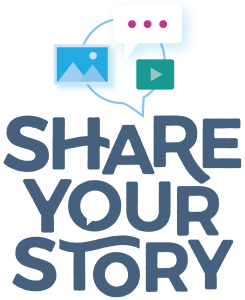Colleen
A Community Immunity Story
 Place of Residence: Noblesville, Indiana
Place of Residence: Noblesville, Indiana
Colleen’s son was born with a primary immunodeficiency that makes him vulnerable to infectious diseases. Navigating his diagnosis as a family has motivated Colleen to advocate for the importance of vaccines and community immunity.
How did your family’s medical journey begin?
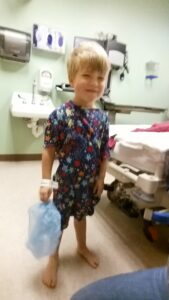 My son was born with a primary immunodeficiency called hypogammaglobulinemia, a condition where there are low levels of immunoglobulins, also known as antibodies, in the blood. This condition increases my son’s risk of infections and makes it harder for him to recover from illnesses.
My son was born with a primary immunodeficiency called hypogammaglobulinemia, a condition where there are low levels of immunoglobulins, also known as antibodies, in the blood. This condition increases my son’s risk of infections and makes it harder for him to recover from illnesses.
We didn’t know my son had a primary immunodeficiency until he was diagnosed at the age of 4, but he was sick all the time during his first few years of life. He had five surgeries before he was 8, and his additional conditions like allergies and asthma made it very difficult to fight off even a minor cold.
Why is vaccination important to you?
When my son was diagnosed, I learned that even though he had been vaccinated on schedule, his immune system wasn’t able to mount an immune response to all vaccines. Despite having been vaccinated, he was left unprotected against diseases like measles and pertussis.
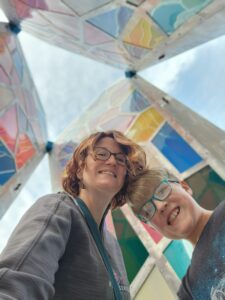 Considering my son was especially vulnerable to respiratory viruses, being unprotected against those illnesses would be devastating for him. After his diagnosis, I realized that so much of his health was in the hands of people in our community: family, friends, preschool classmates, and strangers in public spaces.
Considering my son was especially vulnerable to respiratory viruses, being unprotected against those illnesses would be devastating for him. After his diagnosis, I realized that so much of his health was in the hands of people in our community: family, friends, preschool classmates, and strangers in public spaces.
I knew that I couldn’t keep my son inside forever, and he has an older brother with a normally functioning immune system who attended public school, so that exposed him to illnesses as well. I’m very aware of rising anti-vaccine sentiments and understand how dangerous misinformation can be to maintaining community immunity. I felt like there wasn’t enough of a counter voice online to challenge these anti-vaccine talking points, so I wanted to share my family’s story to be that counter voice.
What advice would you give to someone who didn’t want to vaccinate themselves or their family?
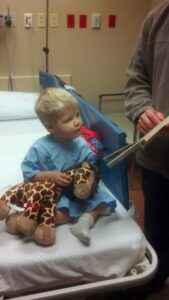 I think it’s understandable to worry about risk. As parents, we have to make so many choices for our children starting from day one, and so many of those choices come with risks. My son was having multiple surgeries to help him breathe and fight infections, and I was very aware of the potential complications that came with each surgery. Anesthesia, infection, and post-operative drugs all carry dangers, but the benefits of my son’s surgeries have far outweighed the risks, so the choice was obvious for us.
I think it’s understandable to worry about risk. As parents, we have to make so many choices for our children starting from day one, and so many of those choices come with risks. My son was having multiple surgeries to help him breathe and fight infections, and I was very aware of the potential complications that came with each surgery. Anesthesia, infection, and post-operative drugs all carry dangers, but the benefits of my son’s surgeries have far outweighed the risks, so the choice was obvious for us.
Vaccines carry far fewer risks than surgery and provide incredible benefits. Of all the decisions we’ve made regarding our son’s health, vaccinating was the easiest. If you have any questions, getting clear answers from credible sources is key to feeling more confident when making these decisions. When I had questions, I relied on medical professionals who have spent decades studying the complex human immune system to provide me with trustworthy information and data. Turning to experts in any given field is the best way to make informed decisions.
Is there anything else you’d like others to know?
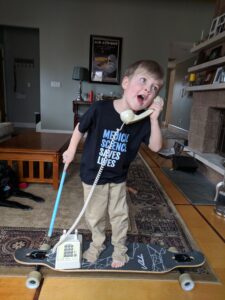 Even though my son has lived with an immunodeficiency his entire life, we didn’t know it until he was 4 years old. We had no idea that his immune system lacks the protection he needs to stay safe from serious diseases, and we were very lucky he didn’t encounter anything serious like measles and pertussis in those years. The protection provided to him by his community saved his life.
Even though my son has lived with an immunodeficiency his entire life, we didn’t know it until he was 4 years old. We had no idea that his immune system lacks the protection he needs to stay safe from serious diseases, and we were very lucky he didn’t encounter anything serious like measles and pertussis in those years. The protection provided to him by his community saved his life.
Decades ago, many children with this condition did not survive childhood because they could not fight off the diseases that were rampant in society before vaccines. Many hereditary conditions don’t immediately present at birth, and vaccines provide protection for the most vulnerable during that time.
BECOME A VACCINE ADVOCATE
There are lots of ways you can make a difference in your community.
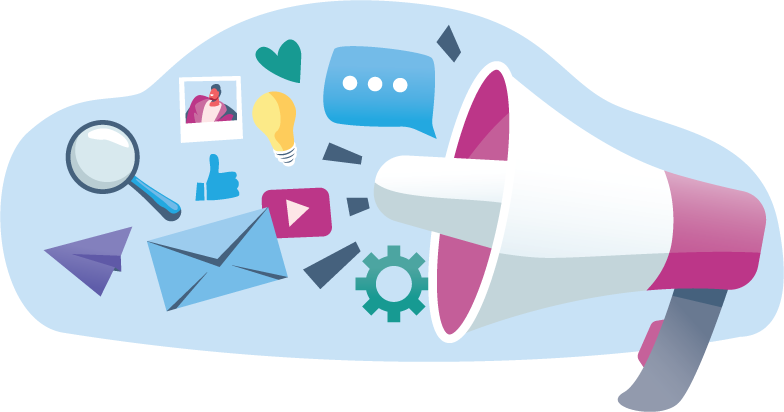
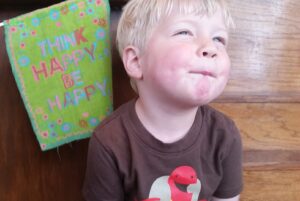 Place of Residence:
Place of Residence: 